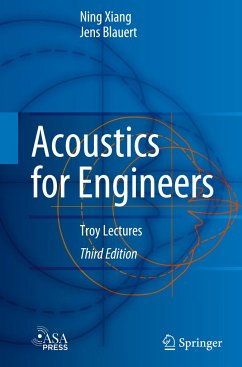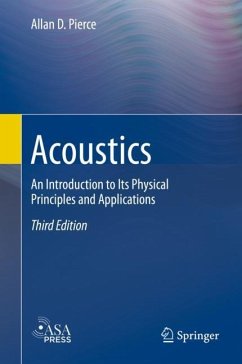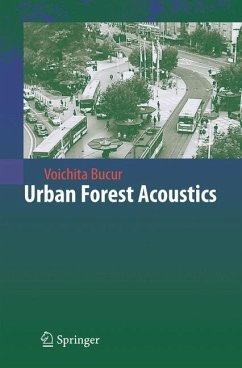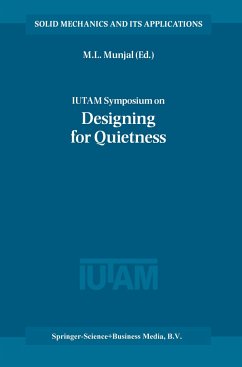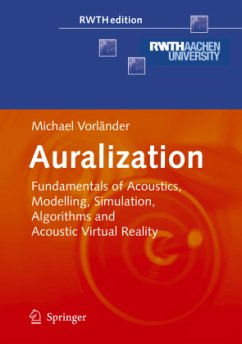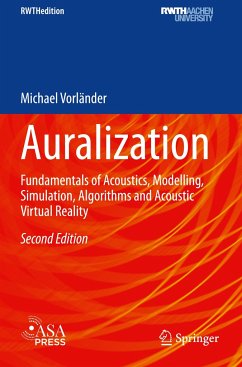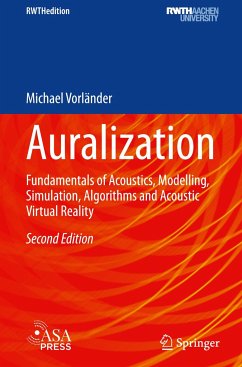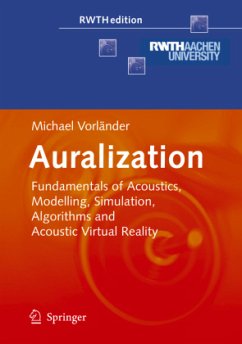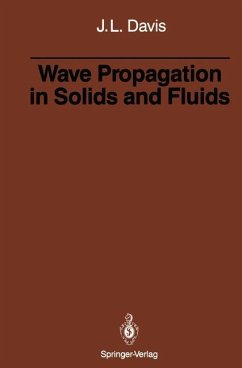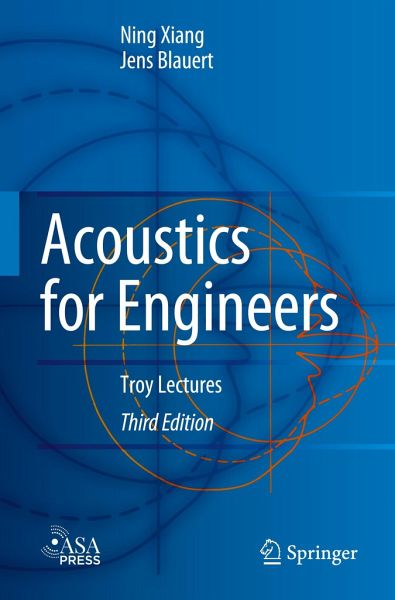
Acoustics for Engineers
Troy Lectures
Versandkostenfrei!
Versandfertig in 6-10 Tagen
49,99 €
inkl. MwSt.
Weitere Ausgaben:

PAYBACK Punkte
25 °P sammeln!
This textbook provides materials for an introductory course in Engineering Acoustics for students with a basic knowledge of mathematics. The contents are based on extensive teaching experience at the graduate level.Each of the 14 main chapters deals with a well-defined topic and represents the material for a two-hour lecture. The chapters alternate between more theoretical and more application-oriented concepts. The presentation is organized to be suitable for self-study as well.For this third edition, the complete text and many figures have been revised. Several current amendments take accoun...
This textbook provides materials for an introductory course in Engineering Acoustics for students with a basic knowledge of mathematics. The contents are based on extensive teaching experience at the graduate level.
Each of the 14 main chapters deals with a well-defined topic and represents the material for a two-hour lecture. The chapters alternate between more theoretical and more application-oriented concepts. The presentation is organized to be suitable for self-study as well.
For this third edition, the complete text and many figures have been revised. Several current amendments take account of advancements in the field. Further, a completely new chapter has been added which presents approaches and solutions to all assigned exercise problems. The new chapter offers the opportunity to explore the underlying theoretical background in more detail. However, the study of the problems and their proposed solutions is no prerequisite for comprehending the material presented in the book's lecture part.
Each of the 14 main chapters deals with a well-defined topic and represents the material for a two-hour lecture. The chapters alternate between more theoretical and more application-oriented concepts. The presentation is organized to be suitable for self-study as well.
For this third edition, the complete text and many figures have been revised. Several current amendments take account of advancements in the field. Further, a completely new chapter has been added which presents approaches and solutions to all assigned exercise problems. The new chapter offers the opportunity to explore the underlying theoretical background in more detail. However, the study of the problems and their proposed solutions is no prerequisite for comprehending the material presented in the book's lecture part.





